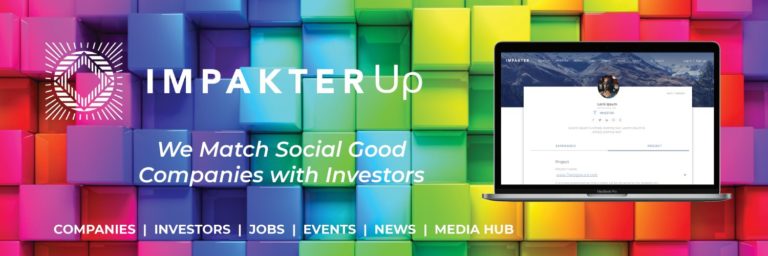This article is part of a media partnership with MIT Solve and was first published here.
Social entrepreneurs Temie Giwa-Tubosun, Ifeoluwa Olokode, and Aisha Abiola explain how simple solutions, expanding on through the use of technology, really can be the answer.
For 800 years, the people of Viganella, a small village in the Italian Alps, went without sunshine for 84 consecutive days every winter. The surrounding mountains blocked sunlight from getting into the village center, so for more than three months each year, residents lived in extreme cold and darkness, and the village center was often bereft of activity as residents stayed home to keep warm.
That was until 2006 when someone came up with the idea to strategically place mirrors to reflect light into the village. Unsurprisingly, this idea was first met with skepticism. Could the solution to this centuries-old problem be that simple? The answer is yes. Today, a simple solution ensures sunlight falls on Viganella every day of the year.
For a solution to succeed, it must seriously consider the current realities of a specific situation, begin with a simple idea, and then expand that idea through the use of technology. In Viganella, the realities were: residents wanted a long-term solution that gave them sunlight, but as a small village, they had limited resources.
Stakeholders had to consider the fact that few alternate lighting sources could provide the benefits of the sun: light, heat, human connection, and joy. Yet as the sun’s position changes throughout the day, this simple mirror solution had to go one step further.
Sponsors invested €100,000, producing a 40-square-meter mirror controlled by heliostat technology, which uses geolocation data and automated motors to change the mirror’s orientation to track the sun’s movement. The result? A mirror in constant alignment with the sun to reflect the best possible light into the village.
This same solution framework applies to communities and countries around the world. Consider the development of mobile money in Africa, made popular by Safaricom’s M-Pesa product. Before mobile money, people in countries like Ghana and Uganda transferred phone airtime credit as a means to send payment. These credits could be used by the recipient or resold—enabling people with modest feature phones and 2G technology to send money without traditional banks, powering the informal sector.
Related Articles: Can We Rely on Bioplastics to Solve the Planet’s Waste Crisis? | 4 Ideas To Keep Water Clean & Available As Seen At CES2021 | Reducing Costs In Healthcare Management With Technology
M-Pesa took this current reality seriously and developed technology that scaled its results and solved additional problems. By keeping things simple and retaining the elements that made it attractive to the intended users—easy transfers via SMS and the ability to immediately obtain cash value—M-Pesa became the number one money transfer method in under a decade.
When we began building LifeBank, a Nigeria-based startup that delivers essential medical supplies, we learned this framework through trial and error. Our target customers are hospitals. In 2016, we launched an app inspired by Uber, through which hospitals could order blood on demand. This tactic was unsuccessful because hospitals did not use apps to order blood—they made phone calls.
We had failed to consider their reality. When we modified our strategy and set up our 24/7 call center, orders rose by over 300%. Since then, after building rapport and trust with our hospital clients, we’ve been able to encourage them to order via the app.
When it came to delivery, we were determined to work within the regulatory, geographical, and financial realities of our market. We chose to use motorcycles to navigate the congested, traffic-laden streets of Lagos, and we use boats to reach rural islands off the coast.
As of a few weeks ago, we added drones to our suite of mobility solutions, expanding our original idea through the use of additional technology. Together, this simple, tech-powered solution has enabled us to move over 17,000 products to over 450 hospitals and save over 6,000 lives. And we’re proud to be an MIT Solve Frontlines of Health Solver.
Although they no longer receive much attention, several simple solutions like the wheel, the printing press, and the phone have made modern life possible. While recent technological advances continue to usher us into an exciting future, numerous problems remain unsolved for the world’s most vulnerable people, leaving them behind. These problems require simple, tech-enabled solutions that meet customers where they are economically, socially, and technologically.
As humans, we are naturally drawn towards new and exciting ideas. However, in many cases, these ideas are years from creating significant direct impact. To drive true impact, human advancement will require pragmatic, tenacious innovations that meet people where they are, work around their current limitations, and prepare them for the future. We must make a conscious effort to scale these simple solutions, lest they be starved of resources and support.
— —
About the Organization: Solve is an initiative of the Massachusetts Institute of Technology (MIT) with a mission to solve world challenges. Solve is a marketplace for social impact innovation. Through open innovation Challenges, Solve finds incredible tech-based social entrepreneurs all around the world. Solve then brings together MIT’s innovation ecosystem and a community of Members to fund and support these entrepreneurs to help them drive lasting transformational impact. Join Solve on this journey at solve.mit.edu.
Editor’s Note: The opinions expressed here by Impakter.com columnists are their own, not those of Impakter.com. — In the Featured Photo: Giant mirrors erected on a mountainside reflect sunlight into the Norwegian town of Rjukan in the valley below, on October 18, 2013. Combined the mirror surfaces are about 51 square meters (549 square feet). Featured Photo Credit: Reuters/The Atlantic










